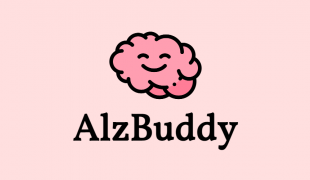- 3818
- 320
- 3
- 5
- 0
- Help Ukraine
About the solution
The app, known as MemCare, works by keeping track of the movements and whereabouts of a person with Alzheimer's. That person wears a bracelet that allows one, with the app, to learn when the wearer is stationary for too long, or has wandered into a place that is not safe.
"I came up with the idea two years ago in a class," Dawson said. The class was entrepreneurship and the instructor, one Dawson said has been of great help to him in his growth as a student, was Vince Palumbo.
Dawson's grandmother, the late Johnnie Wil, he said, largely raised him. Wil suffered a stroke in her late 70s and then developed Alzheimer's to the point where she no longer recognized her grandson. She died at 94.
"I thought of this app because when I was in class I wasn't able to check in with her," he said.
Dawson recently won a $1,200 grant from the seed capital fund and business accelerator Shaker LaunchHouse and has started his own company, MEMcare LLC, to develop the technology so that the monitoring system could be commercially available to the public. He now is working to attract potential investors to create a marketing and manufacturing plan for the new application.
Adapted from: https://bit.ly/1vPiNRK
这些解决方案不应包括使用药物,化学品或生物制品(包括食品);创伤性设备;冒犯性的,商业或内在危险的内容。该解决方案未经医学验证。请谨慎进行!如果您有任何疑问,请咨询健康专家。
DISCLAIMER: This story was written by someone who is not the author of the solution, therefore please be advised that, although it was written with the utmost respect for the innovation and the innovator, there can be some incorrect statements. If you find any errors please contact the patient Innovation team via info@patient-innovation.com
-
-
819
-
0
-
17840

Proloquo2Go – App to help people communicate
CAREGIVING
COMMUNICATION: Communicating, whether by speaking, listening, or other means
Social interaction
Paralysis
Autism
Cerebral Palsy
Brain Stroke
Brain Injury (Abscess, Brain Barrier Defect, Brain Contusion, Brain Hemorrhage, Brain Edema)
Assistive Daily Life Device (to help ADL)
Assistive Technology access
App (Including when connected with wearable)
Tremors
Muscle cramps or spasms
Difficulty coordinating movements
Muscle weakness
Difficulty speaking or understanding speech
Trouble with fine motor skills (e.g., writing, buttoning clothes)
Twitching or involuntary movements (myoclonus)
Acquired language impairment (Aphasia)
Promoting self-management
Managing Neurological Disorders
Building Supportive Community Relationships
Promoting inclusivity and social integration
Improving Speech and Communication
Caregiving Support
Clinical Pathology
Medical Genetics
Neurology
Pediatrics
Rheumatology
Netherlands
-
-
-
481
-
0
-
6268

Man develops web browser for his autistic grandson
CAREGIVING
Autism
Asperger's Syndrome
Assistive Technology access
Assistive Daily Life Device (to help ADL)
App (Including when connected with wearable)
Irritability or anger outbursts
Restlessness or feeling slowed down
Promoting self-management
Managing Neurological Disorders
Promoting inclusivity and social integration
Caregiving Support
Medical Genetics
Neurology
United States
-
-
-
306
-
0
-
3359

AlzBuddy – Two students design app for Alzheimer’s patients
-
 zh
zh